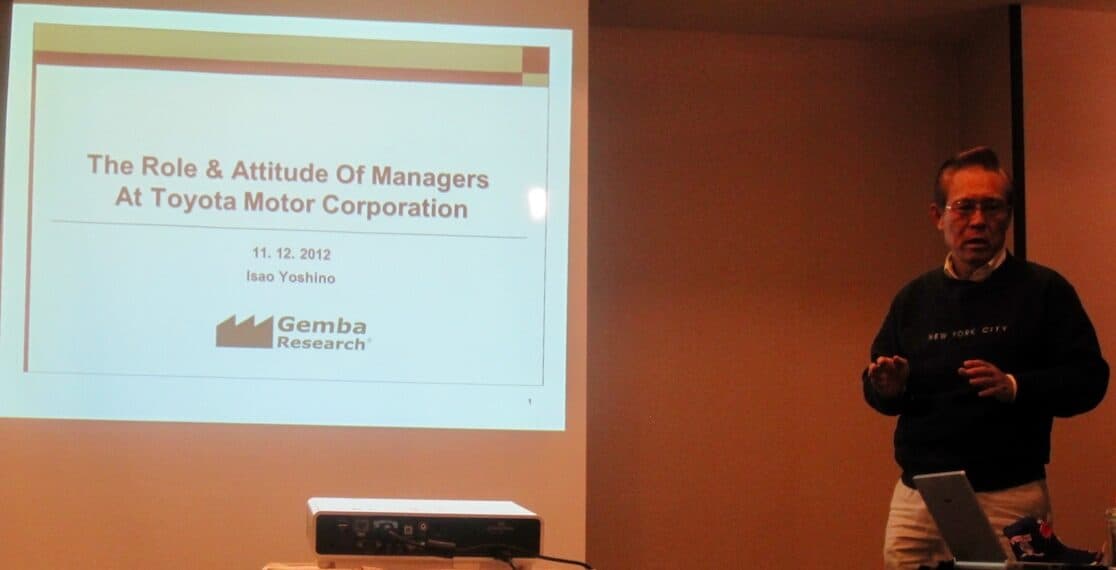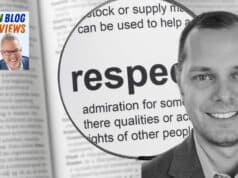I'm very excited to depart for Japan on Sunday for the first time in five years!
The week of November 11, I'll be part of Katie Anderson‘s Japan Study Trip, this time after five previous trips between 2012 and 2019 with Kaizen Institute and Honsha Consulting. Read my posts about past trips. Katie's also doing another trip in May 2025.
Each time, I've learned something new, visited new companies, and met new people — and have just enjoyed everything about being in Japan.
After I started going to Japan, Katie had the opportunity to live in Japan for 18 months, as we discussed in this 2015 podcast:
While in Japan, Katie learned from (and became friends with) former Toyota executive Isao Yoshino.
Mr. Yoshino was the subject of Katie's Shingo Award-winning book Learning to Lead, Leading to Learn.
They were both guests on my podcast “My Favorite Mistake” back in 2021:
Somewhere along the way, in hearing and reading about Mr. Yoshino, it occurred to me that he had given a guest lecture during my first Japan Trip in 2012!!!
Here's a photo from that trip (and it's evidence of how relatively bad iPhone cameras were 12 years ago):

You can read about Mr. Yoshino's education and leadership experience at Toyota in Katie's book, but he shared many key insights in his presentation — and I'll share a few here in the post.
He emphasized the need to “continuously rotate the PDCA Quality Circle,” and that Toyota was successful because they practice this “almost continuously.” He added that Toyota is “very very thorough” about this to the point that it becomes “second nature.” PDCA had already become “quite popular” when he joined Toyota in 1966.
As part of a collaborative and engaging leadership style, Yoshino said “just giving job orders to subordinates is not enough.”
At Toyota, people focus not only on the “advantages” of a proposal but also the “disadvantages.” Analyzing disadvantages “provides valuable hints on how to change them into advantages.” It's not a matter of criticizing the idea, but “making it more practical.”
Even on job applications, you list your strong AND weak points.
I don't think Yoshino used the phrase “Psychological Safety,” but many of the things he talked about remind me of the concept (of feeling safe to speak up at work).
“Bad News First!”
“If there are good things, you don't need my help. Tell me your problems so I can help.”
Otherwise, “Subordinates tend to submit only what they think their boss wants to hear.” And “A good boss is supposed to use bad news to find out WHAT to blame, not WHO.”
Bringing up problems doesn't make you a bad guy, won't get you blamed. Spend more time on solving the problem, not blaming.”
“This approach is one of the reasons I'm proud to be part of Toyota.”
Dealing with Failure
Yoshino said that “failure on the job doesn't mean dismissal or demotion,” and you can hear about that in his podcast episode and David Meier's episode of My Favorite Mistake.
Yoshino asked if a worker consistently can't do the job, does that mean they are unskilled or that they haven't had enough training? Don't just rush to fire them. Maybe they need more training or a different job. Firing people is the last step. The only firings would be if you committed a crime.
Mr. Yoshino also discussed topics and concepts including:
- The power of first-hand information (go to the “gemba” — or where the work is done — and go and see, or listen, for yourself
- Toyota is slow in making decisions (which includes laying the groundwork — or nemawashi), but quick in implementation
- Kaizen (continuous improvement) is done on a daily basis and throughout the company, not just the shop floor
- “A good boss develops subordinates, while a bad boss hinders them.”
I'm excited that I'll get to see Mr. Yoshino again in person. He's planning on being with us for the entire week — another great learning opportunity!!!
Please scroll down (or click) to post a comment. Connect with me on LinkedIn.
Let’s work together to build a culture of continuous improvement and psychological safety. If you're a leader looking to create lasting change—not just projects—I help organizations:
- Engage people at all levels in sustainable improvement
- Shift from fear of mistakes to learning from them
- Apply Lean thinking in practical, people-centered ways
Interested in coaching or a keynote talk? Let’s start a conversation.










[…] Reflecting on my First Time Assembly Isao Yoshino in Japan — 2012 – Mark Graban displays on his final journey to Japan and the teachings realized from Mr. Yoshino (topic of Katie’s Shingo Award-winning ebook Studying to Lead, Resulting in Be taught) forward of embarking on a brand new journey with Katie Anderson to Japan. […]